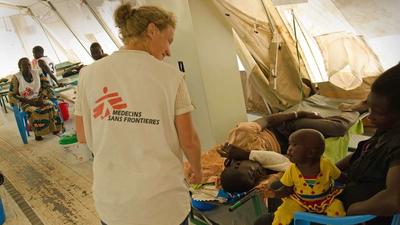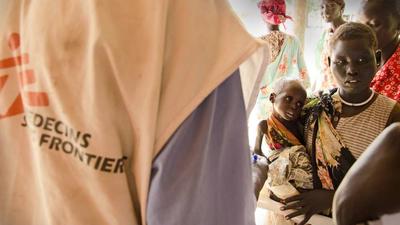Jacob Burns works as Communications Adviser for MSF. He recently visited the Gaza project and witnessed first-hand the physical and mental agony of hundreds of young men and women, who were shot by the Israeli forces when they participated in the March of Return protests.
For me, places become marked by certain words. A quirk of the local vocabulary heard so often that it creeps in and colours my mental picture of the place. In Gaza, talking to MSF’s patients, that word was the Arabic for “sitting”. Not here the airy dropping of the “Q” heard in Jerusalem, but a grounded, gruff “G”. Gaad – the heavy double “A” dragging the word out, lengthening the syllable to the limit of what is possible, a certain defiant slowness that recalled someone easing themselves down onto a couch.
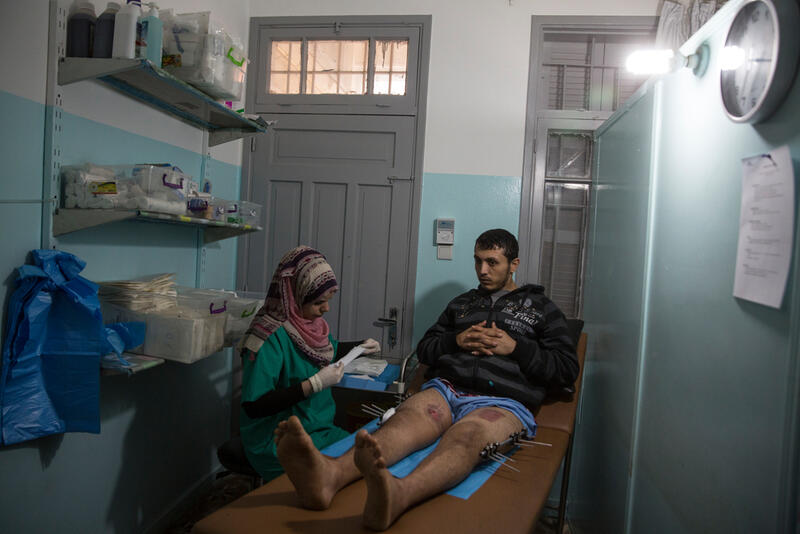
One reason that I heard “sitting” so frequently there is that getting shot in the leg makes it difficult to do much else, and a lot of Gazans were shot recently. The Israeli army has inflicted gunshot wounds on over 4100 people in the course of protests since the end of March, and MSF has treated over 1700 of them. The vast majority have been shot in the lower limbs. A sudden and deliberate outbreak of smashed legs resulting in a new demographic: those without much choice but to sit and wait to heal.
“Why did I go to the protests?” asked Musaab Musa, as he sat in the Khan Younis clinic. A keen journalism student, he had a bandage tied around the small part of his foot left after amputation. “For a long time I wanted to go to the fence, just to see it. I wasn’t throwing stones, I was just sitting down when I got shot. It felt like electric, and then my brother picked me up and took me back to the ambulance.”
He is one of many of our patients suffering life-changing effects from his wounding: the bullets fired by the Israeli army at protesters have smashed bone, gouged out flesh and ripped away nerves and veins. Never have our teams dealt with so many gunshot wounds in such a small amount of time. The patients come to our clinics in the morning, bringing their legs, encased in metal to hold the broken bones in place, for a dressing change, trying to stave off the bone infections that stalk many. Elsewhere, in operating theatres, teams in blue gowns open damaged legs to pare away shards of bone, reshape shredded muscle and graft skin to close holes. It is a vast effort.
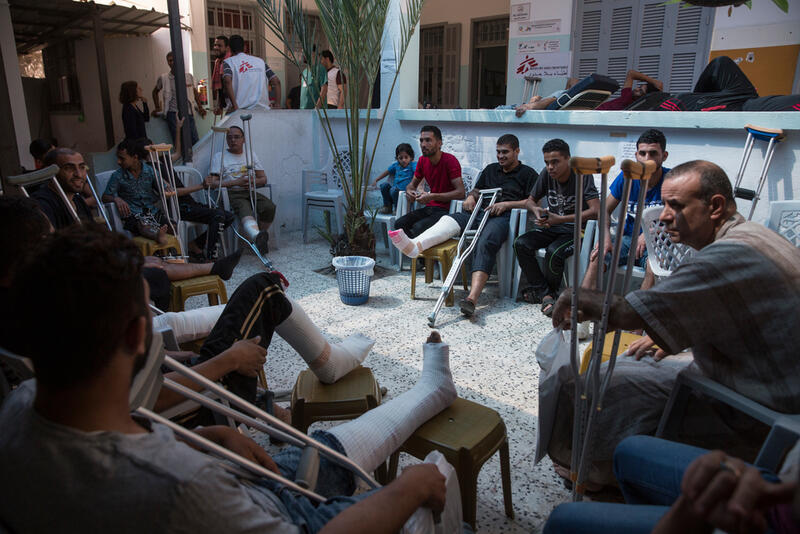
Julia Amando, an MSF surgeon from Brazil, explained to me the stakes for the patients she was operating on. “When you lose a lot of tissue because of a gunshot wound, lots of sensitive structures become exposed, like your bones, so you can get a fatal infection or lose the member if the wound is not closed.” That was her job as a plastic surgeon, cutting and moving muscles precisely to fill wounds with living tissue. That will not heal the patient, however, only stabilise them. “Even when the wound is closed the fracture is still present, there is a lot of a bone loss. So the patients will need a bone graft, putting another piece of bone in the gap,” she said.
There is another reason why I heard gaad so often: Gaza’s economy is near collapse. A crippling ten-year blockade by Israel, combined with Palestinian political infighting, has raised unemployment to astronomical levels. “Before I was wounded, I had been studying at university, but then I had to drop out and I was sitting at home because of a bad financial situation,” says Mohammed Dashan, 19, from az-Zeitoun.
He says that political anger drove him to take part in the protests, and that he was shot twice: a minor wound on March 30 did not stop him from going back, and his leg was shattered by a bullet on May 11. “My father is also unemployed. Now, I sleep in bed, get up to pray, then I sit about more. I don’t feel good, I’m angry, bored. How I feel, it’s not natural,” he told me, a small moment of vulnerability in an otherwise studiously maintained detachment. He insisted, however, that he pays no mind to the long-term effects of his wound. “I haven’t thought about the future. I thought about it two or three times and then I forgot it.”
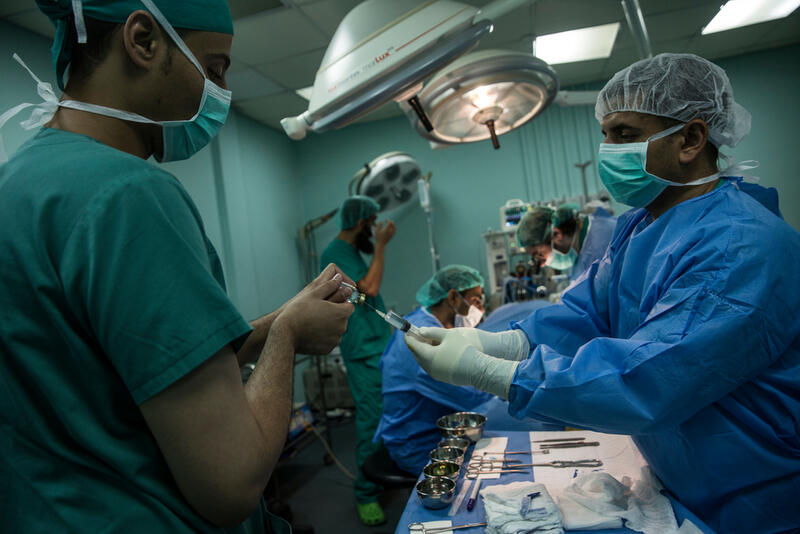
Many others, however, were more open about what their wound meant for them. “The hardest thing about the injury is not being able to walk,” said Musaab. “I’m a little bit scared for the future. Will I be able to walk again?” It is a question that MSF’s surgeons are not able to answer for many yet, as spring turns to summer and patients sit home, waiting to see what heals. MSF is sure, however, that without complex surgeries – unavailable in blockaded Gaza – the answer for a significant proportion of our patients will be, unfortunately, ‘no’.
RELATED STORIES
A long ordeal awaits hundreds of wounded from the March of Return
An extra 30 MSF nurses to cope with the influx of the wounded



